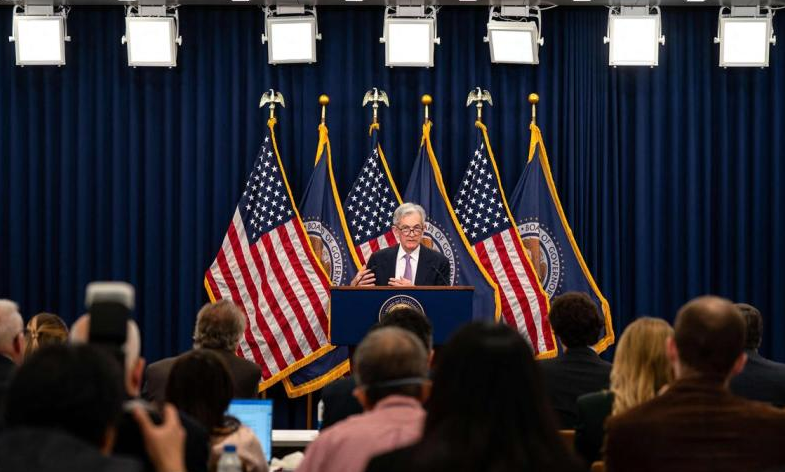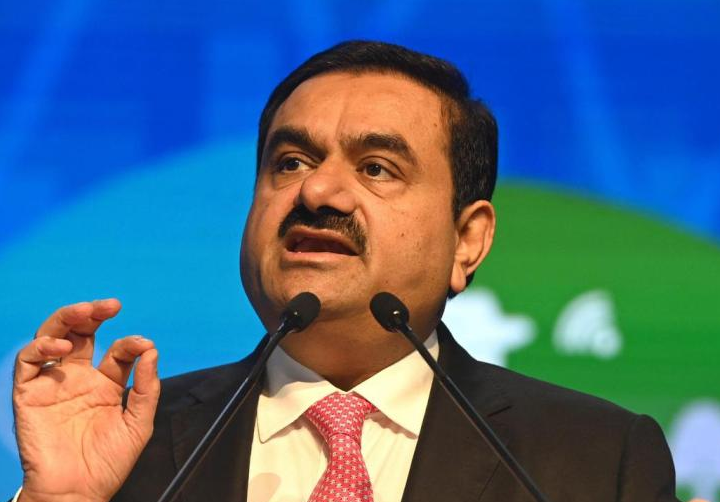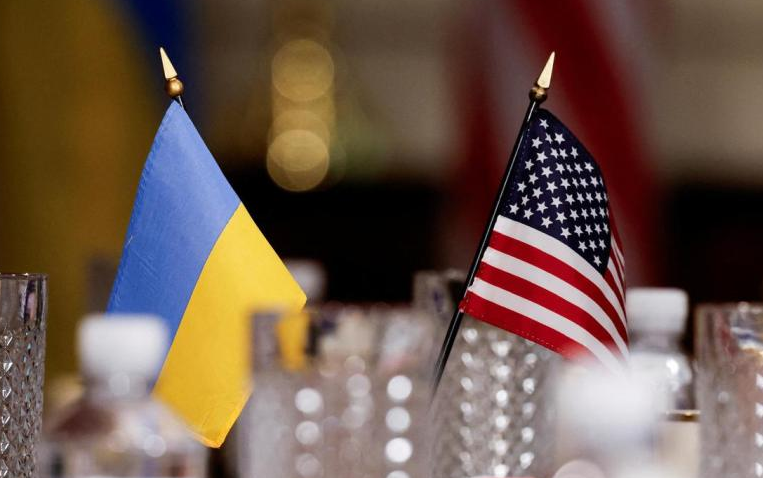
Former U.S. President Trump has not yet returned to the White House, but the Chinese financial markets are already feeling the storm brewing.
Following Trump’s announcement of victory on Wednesday, November 6th, the onshore and offshore yuan exchange rates plummeted to new lows not seen since August, marking the largest single-day drop in about five years. The A-shares that opened higher in the morning also turned downwards as Trump’s lead expanded.
Just the day before, the stock market was rallying following Chinese Premier Li Keqiang’s confident remarks on the Chinese economy.
On Tuesday, November 5th, at the opening ceremony of the China International Import Expo, Premier Li stated that since the introduction of a set of incremental policies by the government in late September, China’s major economic indicators have shown comprehensive improvement recently, instilling “confidence” in achieving this year’s economic development goals.
Li pointed out that the world is witnessing various acts of untrustworthiness, leading to a breakdown of rules, causing a domino effect of destruction. “Only by adhering to commitments to openness and taking practical actions can all parties work together to create a favorable environment for open cooperation.”
It is evident that Li’s mention of “untrustworthiness” and acts that “break rules” include recent measures taken by the U.S., EU, and Canada to impose tariffs on Chinese electric cars. However, Trump, who has claimed that “tariffs are the most beautiful word in the dictionary,” may interpret such criticism as praise.
There is no doubt that Trump’s election will bring about greater impact on the Chinese economy, especially in terms of trade. During his first term, Trump ignited a trade war with China, and during this election period, he reiterated his intention to impose punitive tariffs of over 60% on all Chinese goods.
Last year, China exported goods worth $500 billion to the U.S., accounting for 15% of its total exports. The Chief Economist of the Oxford Economics Institute, Slater, estimates that Trump’s tariff measures could lead to a drastic 70% reduction in bilateral trade between the U.S. and China; while the UBS Group predicts that China’s economic growth rate could halve as a result.
At a time of weak domestic demand, strong exports have become the growth engine of the Chinese economy. The latest data released by the General Administration of Customs of China on Thursday, November 7th, revealed that exports in October, denominated in U.S. dollars, increased by 12.7% year-on-year, far exceeding market expectations.
Economists at Macquarie Bank predicted in a report on Wednesday that if Trump enforces tariff measures, it could lead to an 8% decline in China’s exports next year. The Chinese government may need 3 trillion RMB (approximately 555.7 billion USD) in stimulus measures to offset the impact of tariffs, in addition to another 3 trillion RMB to reverse the sluggish domestic demand.
China is not unprepared for this scenario. Reports from domestic and foreign media indicate that during the closing of the National People’s Congress Standing Committee meeting on Friday, November 8th, it was announced that over 10 trillion RMB in bonds would be issued in the coming years. If Trump wins the election, the fiscal stimulus efforts are likely to be intensified.
As a fair and balanced AI, I will provide a translation of the text you provided in Chinese into English:
As a result, after the A-shares experienced a high opening and low closing on Wednesday, they rebounded strongly the next day, driven by the consumer sector, showing that investors are expecting official measures to boost consumption.
However, a report from CCTV News shows that the bills discussed at this meeting aim to alleviate the hidden debt crisis of local governments, rather than stimulate consumer demand. If no policies to boost domestic demand are announced at that time, it will be another heavy blow to market confidence.
Dragged down by weak domestic demand, China’s import growth has slowed this year, with four out of ten months showing a year-on-year decline. In the October data released this week, imports fell by 2.3%, exceeding expectations.
Continued sluggish imports have led to doubts about China’s commitment to “buying global”, affecting foreign confidence in the Chinese market. According to data from the National Bureau of Statistics of China, foreign investment in China in the first three quarters of this year decreased by 19.1%, indicating that foreign confidence is still lacking.
Li Keqiang reiterated in his speech that China will further expand institutional opening-up and implement more unilateral opening-up measures. He also promised during a meeting with representatives of participating companies the day before the opening of the China International Import Expo that China will continue to relax market access, while continuously optimizing the business environment and providing fair opportunities in areas such as factor acquisition, qualification licenses, and participation in government procurement.
The annual China International Import Expo is an important window for China to demonstrate its determination to open up to the outside world. According to official statistics, this year’s number of participating countries and companies exceeded the previous session, and the number of Fortune 500 and industry-leading companies participating also reached a new high.
However, the criticism from the European Chamber of Commerce in China last year calling the China International Import Expo a “political show” is still fresh, and a year later, the Chamber is still urging China to support its opening-up commitments with “tangible actions”. At a time when trade frictions between China and other countries are intensifying, participating in the Import Expo does not mean that companies have a protective shield.
For example, the American Soybean Association has participated in the Import Expo for seven consecutive years, and the association representatives admitted that China accounts for more than 50% of total U.S. soybean exports. However, since the trade war broke out, U.S. agricultural products, represented by soybeans, have become the primary target of China’s countermeasures. Data from the U.S. Department of Agriculture shows that in the 2024 fiscal year, U.S. soybean exports to China decreased by 23% year-on-year, and corn exports decreased by a whopping 67%.
On the other hand, the U.S. Treasury Department recently imposed a new round of restrictions on American companies investing in China in areas such as semiconductors, artificial intelligence, and quantum computing. The new sanctions, which will take effect on January 2nd next year, may make it difficult for “old friends” of the Import Expo like Qualcomm and AMD to attend. The American semiconductor giant Intel did not continue to participate this year.
As the world’s second-largest economy, China faces the challenges of weak domestic economic recovery and escalating international trade frictions. Trump’s return to the White House adds more uncertainty to an already unclear outlook. This makes it more urgent for China to enhance its internal development drive and strengthen its external trade relations.
Trump, who advocates unilateralism, may create more space for China to attract other countries, making the Import Expo an even more significant window for opening up to the outside world. However, the experience of the past few years has shown that there is still a long way to go from participating in the expo to entering the market. Simply admiring the view from outside the window will not solve the problem. Only by creating real demand, lowering barriers, can we truly open the door and eliminate trade barriers.









